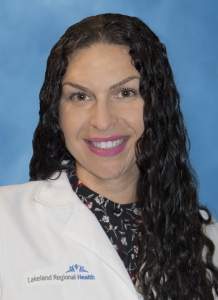By DANNA COSTA-SAHS, PsyD, MA

Depression is a serious mental illness that negatively affects how you feel, the way you think and how you act.
Reaching out for help when you feel depressed is extremely important. Equally important is recognizing signs and symptoms in those around you so you can assist. Depression is one of the most common mental disorders in the United States and is very treatable.
Research suggests that depression may be caused by several factors such as genetics, biochemistry, personality, environmental factors, and/or medical conditions. Depression can affect anyone, even a person who appears to live in a relatively ideal situation.
Feeling sad for a few days does not mean that someone is depressed. Sadness and depression are not the same. While feelings of sadness will lessen with time, the disorder of depression can continue for months, and for many years without a clear explanation as to the cause.
Individuals who have experienced depression note marked differences between normal sadness and the disabling weight of clinical depression. Prolonged periods of sadness, depressed mood, loss of interest, hopelessness, insomnia or oversleeping, changes in appetite, restlessness or irritability, difficulty thinking, concentrating or making decisions, feelings of worthlessness or inappropriate guilt, withdrawal from others, decreased energy, thoughts of suicide or attempts at suicide are all symptoms of depression. Depressive symptoms affect how you think, feel and handle everyday responsibilities.
Risk factors for depression include:
- Personal or family history of depression in parents or siblings
- Physical illnesses
- Female gender
- Older age
- Medications
- Previous suicide attempt
- Drug/alcohol use
- Recent divorce or separation
- No social support
- Trauma history
- Stress and major life changing events
- Struggle with balancing work and personal lives
- Comparing self to others
Depression is common. It affects nearly 1 in 10 adults each year, nearly twice as many women as men. It’s also important to note that depression can start at any time, but on average, it first appears during the late teens to mid-20s. Depression is also common in older adults.
Untreated depression is a top cause for suicide. According to the Centers for Disease Control and Prevention, nearly 45,000 Americans died by suicide in 2016. Suicide was the second leading cause of death in individuals between ages 10 and 34 and the fourth leading cause of death for those ages 35 to 54. According to the World Health Organization, a suicide occurs every 40 seconds. Suicide is one of the top causes of death in the United States and accessing care is extremely important.
Suicide is preventable and being aware of the signs that someone may experience is the first step to getting help. People who commit suicide don’t want to die; for many, they are looking to end their pain. It is important to take seriously any threat of suicide and to reach out for help or offer to find help for someone you know.
Connecting with a trained professional, such as a psychologist, psychiatrist, counselor or crisis hotline, could make a world of difference. For many people, depression cannot always be controlled for any length of time simply by exercise, changing diet or taking a vacation. It is, however, among the most treatable of mental disorders: Between 80% and 90% of people with depression eventually respond well to treatment, and almost all patients gain some relief from their symptoms.
Before a specific treatment is recommended, a thorough diagnostic evaluation, consisting of an interview and a physical exam, should occur. The purpose of the evaluation is to reveal specific symptoms, medical and family history, cultural settings and environmental factors to arrive at a proper diagnosis and to determine the best course of treatment. Some additional steps that you can do to help alleviate your symptoms of depression include living an active life, setting realistic goals, spending time with positive people, letting others help, trying not to isolate yourself, not making important decisions when feeling down and reaching out to others.
Depression is never normal and always produces needless suffering. With proper diagnosis and treatment, the vast majority of people with depression will overcome it. If you are experiencing symptoms of depression, see a trained professional, describe your concerns and receive the help you need to feel better.
Some additional resources available for those who are in eminent or immediate danger:
- Go to the nearest emergency room right away.
- The National Alliance on Mental Illness has a text service. The acronym “NAMI” or “HOME” can be texted to 741-741 and a crisis counselor will respond.
- Polk County’s crisis line is 863.519.3744. This line is sponsored by the United Way of Central Florida and is available 24/7.
- The National Suicide Prevention Lifeline is 1.800.273.TALK (8255). This service is also available 24/7.
Resources: American Psychological Association, American Psychiatric Association, Center for Disease Control, World Health Organization
About the Author
Danna B. Costa-Sahs, PsyD, MA, is a Licensed Clinical Psychologist with Lakeland Regional Health’s Behavioral Health services.
